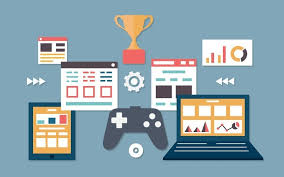
In an age where technology pervades every aspect of life, educational methods are undergoing a transformative shift. At the heart of this change is gamification, a strategy that applies game-design elements to non-game contexts to make learning more engaging and effective. Among the thought leaders and innovators in this field is John Carlos Lozano, whose work has revolutionized the way educators approach teaching and how students experience learning.
John Carlos Lozano has been a proponent of using gamification to enhance educational experiences for learners of all ages. By incorporating elements such as points, levels, challenges, and immediate feedback into the curriculum, Lozano posited that students are more likely to be motivated and to retain information. His methodology advocates for an interactive learning environment where progress is visible and achievements are celebrated, much like in a game.
Lozano’s philosophy hinges on the concept that education should not be a one-size-fits-all model. Each student has unique interests and learning styles; gamification allows for personalized learning paths that can adapt to these differences. By offering multiple ways to achieve objectives and progress through material, educators can cater to the individual needs of their students, thus promoting inclusivity within the classroom.
One of the critical aspects of Lozano’s approach is its emphasis on intrinsic motivation. He believes that when students are genuinely interested in what they’re learning, their engagement levels skyrocket. To this end, gamification makes learning fun and draws parallels with problem-solving scenarios found in games, which can make even complex subjects more accessible and enthralling.
Furthermore, Lozano views failure as a key component of learning—a stark contrast from traditional methods where failure is often stigmatized. In the safe environment of the gamified classroom, students can take risks and learn from their mistakes without fear of judgment. This attitude encourages creativity and exploration, crucial skills in both academic settings and real-world applications.
Lozano’s impact on education through gamification extends beyond individual classrooms. He has worked with institutions to overhaul their curricula on a larger scale, ensuring that these innovative techniques are incorporated into the very fabric of educational systems. His initiatives have led to increased student attendance rates and higher test scores but more importantly to students who are eager to learn and apply their knowledge.
As we look toward the future of education, it is clear that John Carlos Lozano’s contributions will continue to shape how we learn for years to come. His vision of a dynamic, game-like learning process promises not just better educational outcomes but also happier, more fulfilled learners ready to take on the challenges of tomorrow with confidence. Gamification under Lozano’s guidance is more than just playing games; it’s about constructing an engaging narrative for education—one where every student can be the hero of their own learning journey.
